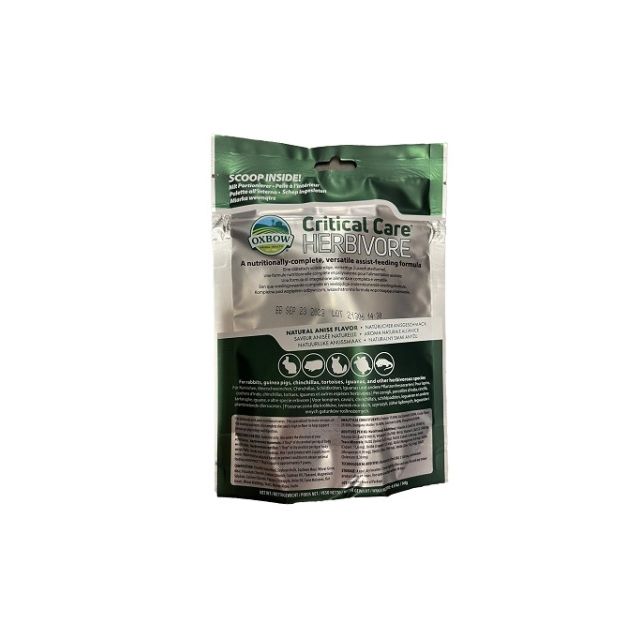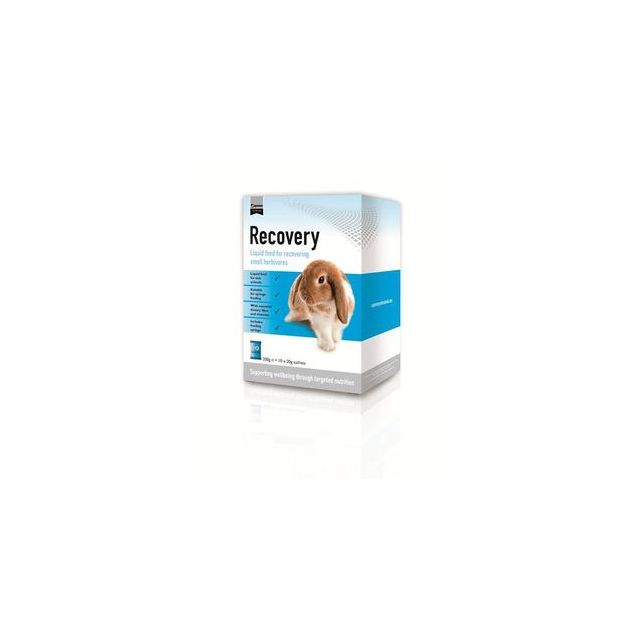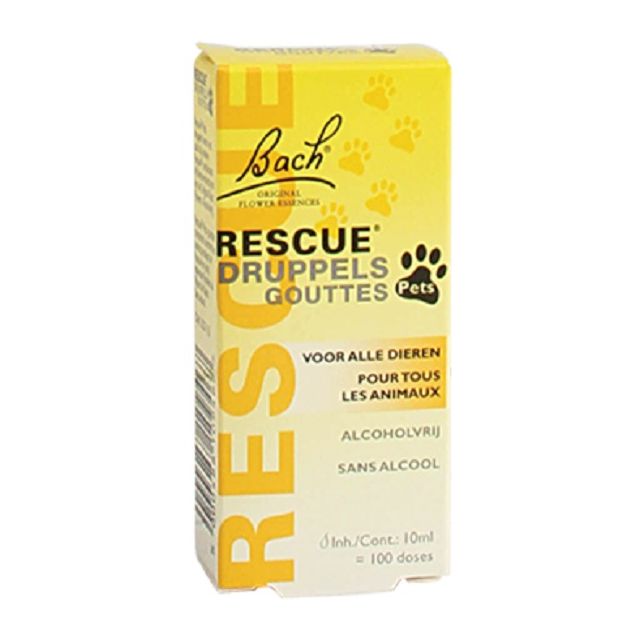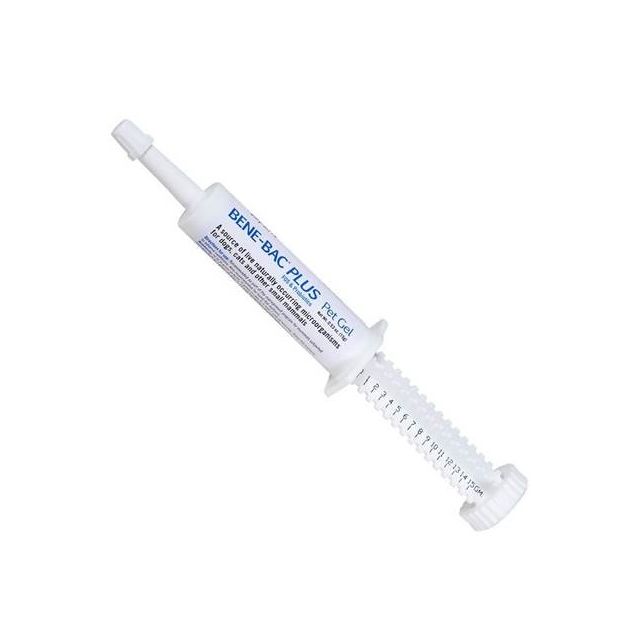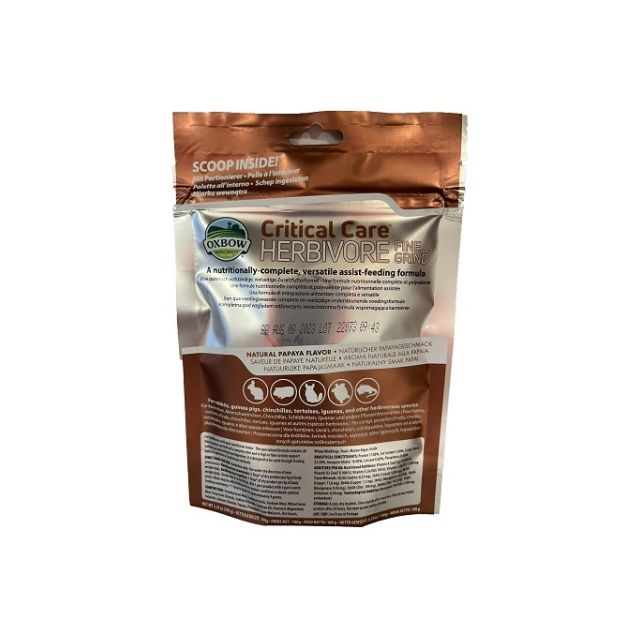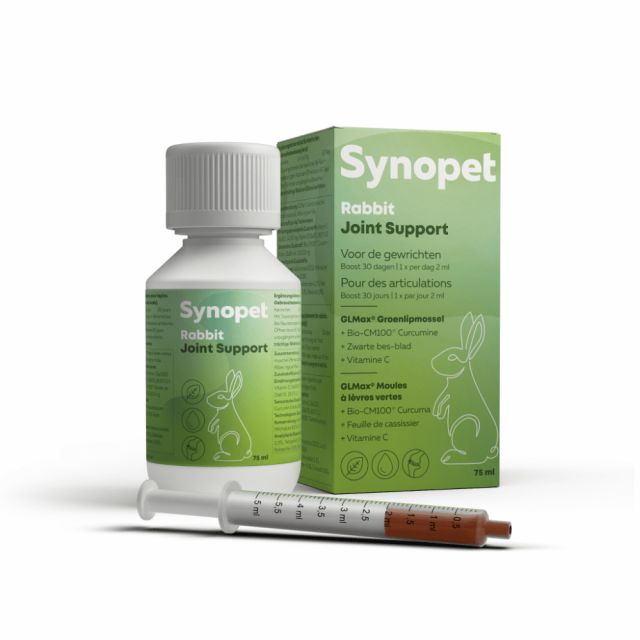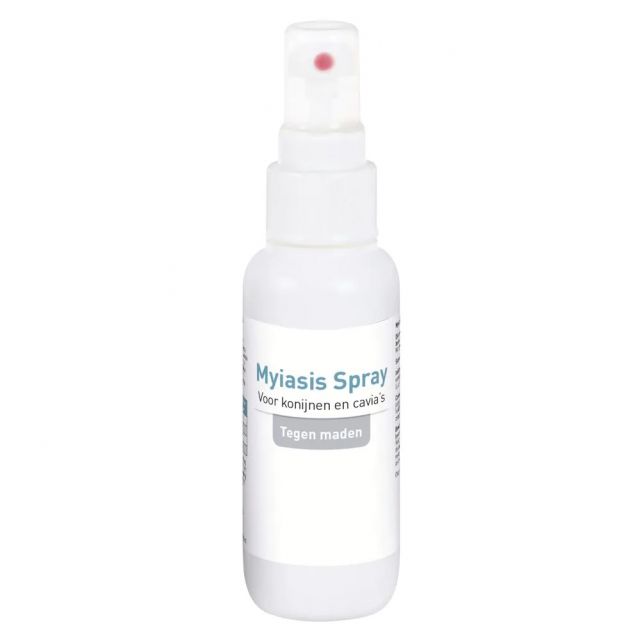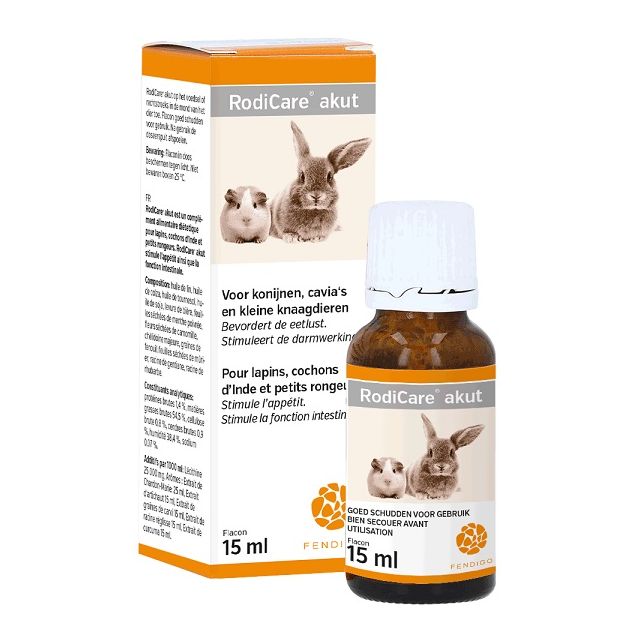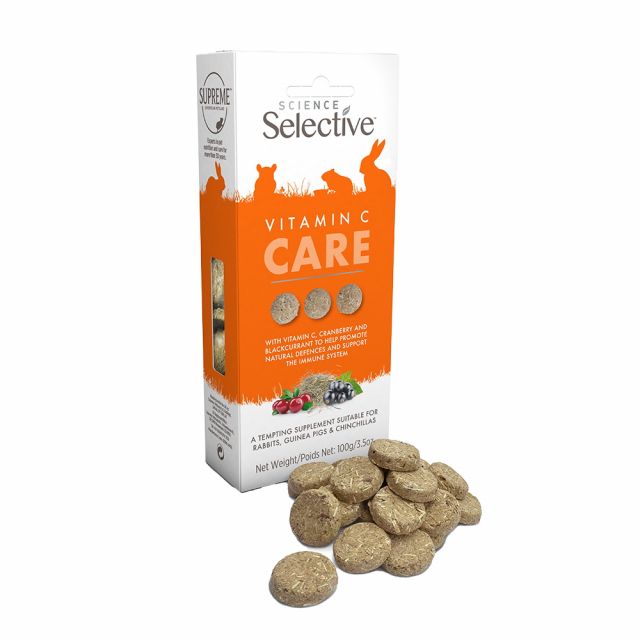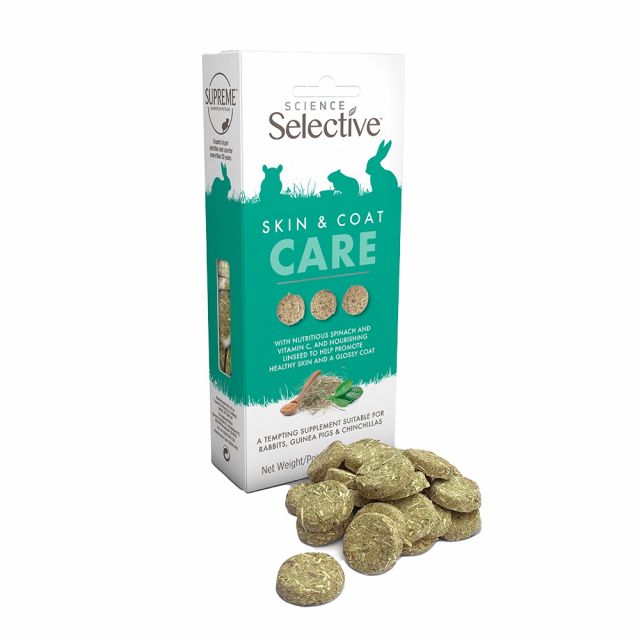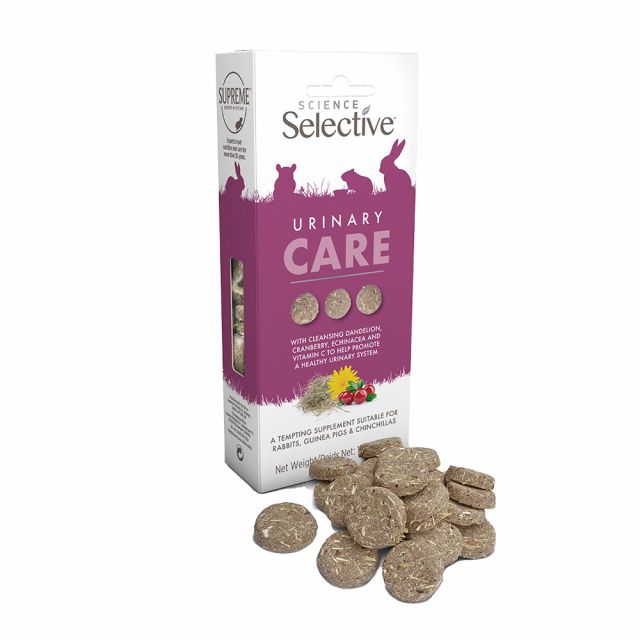Medicine and supplements for the rabbit
Rabbits are prey animals and often show signs of discomfort or pain only at a late stage. A small change in behavior, posture, or appetite can therefore be alarming. Many problems in rabbits are related to diet and can (partly) be prevented. Pharmacy4pets helps you keep your rabbit healthy with a wide range of healthy rabbit food, medications, and supplements.
The Secret to a Healthy Rabbit: Good Nutrition
Rabbits are herbivores and naturally have a fiber-rich diet that is low in fat and sugar. Many health problems in rabbits are caused by improper nutrition. A diet that is too low in fiber and too high in sugar can easily lead to obesity, bladder stones, digestive issues, and dental problems.
Hay is the most important part of a rabbit's diet and should always be available in abundance. In addition, they may be given some leafy green vegetables. Snacks and fruit should be given sparingly. Pellets provide the vitamins, minerals, and other nutrients that are not sufficiently found in hay and vegetables. By choosing a so-called ‘pellet food,’ where all pellets are the same, you can ensure that your rabbit receives everything in the right proportions and does not eat selectively. Science Selective Rabbit is a natural, high-quality rabbit food specifically formulated to meet the nutritional needs of rabbits.
Common Health Problems in Rabbits
It is useful to familiarize yourself with the most common health problems and what you can do at home to help your rabbit. There are some medications you should always have in your first aid kit for quick intervention.
Dental Problems
Dental problems are common in rabbits. Their teeth and molars grow throughout their lives and normally wear down through chewing. If a rabbit has an abnormal jaw shape (for example, in dwarf rabbits with their ‘round heads’) or the diet is low in fiber or does not contain the right amount of calcium, problems can arise. Symptoms may include:
- Not eating or eating less.
- Eating more slowly.
- Messing with food.
- Eating differently: for example, not eating hay or certain vegetables anymore, shaking the head while eating, chewing differently.
- Excessive salivation: wet chin or, more commonly, the inside of the front legs is wet from wiping away the saliva.
- Fewer or smaller droppings.
If you notice these symptoms, you should make an appointment with the vet immediately. They will check the teeth and, if necessary, trim them. Since the teeth and molars continue to grow, dental problems often return after a few weeks or months.
Not Eating or Eating Much Less
A rabbit that is not eating or eating less is an emergency. As herbivores, rabbits need to eat small amounts throughout the day. If they don't, their intestines can shut down, making the problem much worse. Not eating or eating less can have many causes, such as pain, stress, dental problems, or feeling unwell.
If you notice that your rabbit is not eating or eating less or, for example, refuses a particular part of its diet, such as hay or pellets, or is producing fewer or smaller droppings, this is ALWAYS a reason to consult your vet.
Because it is so important that your rabbit keeps eating, it is advisable to feed a non-eating rabbit (that does NOT have a stomach or intestinal obstruction). Science Selective Recovery or Critical Care is liquid food for sick or recovering rabbits. The food can be administered with a handy feeding syringe. Depending on the cause and severity, your rabbit may also need painkillers, gut stimulants, or other medication.
Gut Stasis
A rabbit's gut is constantly working with all the fibrous little bits of food that a rabbit eats throughout the day. However, sometimes things go wrong, and the gut movements stop. This is known as 'gut stasis.' It can be caused by an obstruction from a hairball, reduced eating, too little fiber in the diet, or pain. Rabbits with gut stasis will become sluggish, produce fewer or no droppings, and have reduced or no appetite. Gut stasis is an emergency! If the cause is not an obstruction, it is advisable to start force-feeding the rabbit to try to stimulate the gut to start moving again. Cisaral drops is a product that stimulates gastric emptying and gut movements. However, it is always important to consult your vet before giving Cisaral drops, as they can be dangerous in the case of a gut obstruction.
Diarrhea
If your rabbit has abnormal stools, it MAY be diarrhea. It could also be another phenomenon known as caecotrophs (also called ‘sticky poop’). A rabbit has two types of stools. The normal droppings and the somewhat sticky caecal droppings. Caecal droppings are softer and smaller than normal droppings and stick together in a kind of cluster; they look much larger than the usual round droppings. Often, caecal droppings are black and have a thin layer of mucus on them, giving them a shiny appearance. Normally, rabbits eat the caecal droppings directly from the anus to absorb certain nutrients released by bacteria in the caecum. So, you will not or rarely see them.
If the caecal droppings are left in the hutch, something is wrong. A rabbit will not eat the droppings if their composition is not correct (incorrect composition of the diet: too little fiber and/or too many sugary snacks) or if it is unable to eat the droppings from the anus, often due to obesity, dental problems, or back issues.
The approach to caecotrophs is often aimed at optimizing the diet: temporarily only hay, complete cessation of sugary snacks, bread, and fruit. Fibreplex, a fiber-rich paste with prebiotics and probiotics, helps restore your rabbit's gut flora balance. If mixed food is being given, transitioning to a pellet without added sugar like Science Selective is advisable. This will also help address obesity (of course, don't give too many pellets!). If there is back pain, pain relief is often needed. You can also support your rabbit's joints with Synopet Rabbit Joint Support. Dental problems must, of course, be treated. With caecotrophs, there will be both abnormal sticky droppings and normal droppings. If all droppings are abnormal in consistency, it is diarrhea. This can be diet-related, but it can also be caused by parasites. A visit to the vet is recommended.
Myiasis
During the summer months, this unpleasant condition unfortunately occurs frequently. The original cause is often poor diet. With too little fiber and too much sugar, the rabbit's stool changes and sticks to the rear. This attracts flies that lay eggs. From these eggs, maggots hatch. The diet of the maggots initially consists of the stuck stool, but soon after, they start feeding on the rabbit's skin. You may first notice an unusual number of flies buzzing around your rabbit's hutch. It may also be noticeable that the rabbit is restless and stomps its hind legs a lot. If you suspect myiasis, go to the vet immediately; the damage is often greater than it first appears. To prevent maggot problems, daily inspection of your rabbit is extremely important. Check your rabbit's rear for stuck stool and urine, and keep your rabbit dry and clean. Keep the hutch clean. Prevent flies in the hutch by covering it with a mosquito net or screening it with mesh. During the summer months, you can spray your rabbit's rear every four weeks with Myiasis Spray.
Skin Problems in Rabbits
Hair loss in rabbits can be related to molting, be hormonal in nature, or be caused by fungal infections or fur mites. Stronghold protects your rabbit against fur mites. Small wounds or skin irritations can be treated with Dermiel honey ointment. To prevent your rabbit from further injuring itself or after surgery, for example, there is a special Medical Pet Shirt for rabbits!
Pharmacy4pets helps you take the best care of your rabbit. If you have any questions about medication and supplements for rabbits, please contact us.

